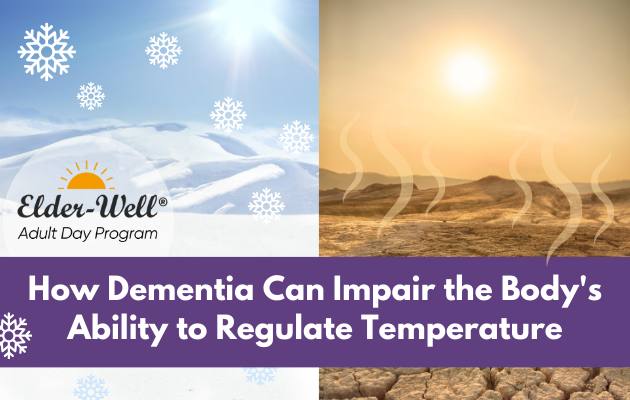Call us today at:
866-821-4333Call us today at:
866-821-4333Jan 05,2024

Dementia is widely recognized for its impact on cognitive abilities and memory, but one lesser-known aspect of dementia is its potential to impair the body’s ability to regulate temperature. Read our blog to learn more about the connection between dementia and temperature regulation, along with the implications and potential risks involved.
Our bodies strive to maintain an optimal internal temperature of approximately 98.6°F (37°C) to ensure proper functioning of vital organs and metabolic processes. This regulation involves the hypothalamus in the brain.
The impairment of temperature regulation due to dementia can have several significant implications and risks:
Understanding the impact of dementia on temperature regulation is crucial for caregivers, family members, and healthcare professionals. Caregivers should take proactive steps to ensure a safe and comfortable environment for those they are caring for, including maintaining a suitable indoor temperature, providing appropriate clothing, and monitoring for signs of discomfort or distress. By addressing temperature regulation challenges, we can enhance the quality of life and safety of those we love and support.
Disclaimer: Nothing on this website is intended, and shall not be deemed to constitute, an offer to sell a franchise. Franchise offerings are made only by a Franchise Disclosure Document and only in those states where permitted. The Elder-Well Franchise Disclosure Document has not been filed with any franchise registration state.